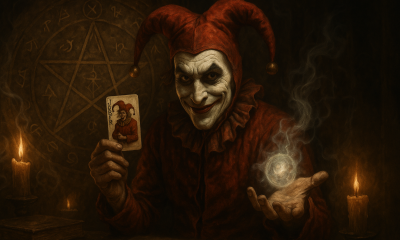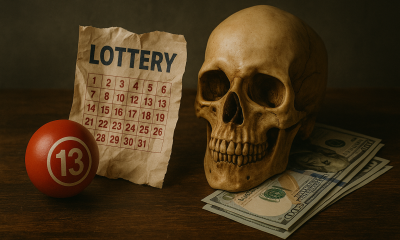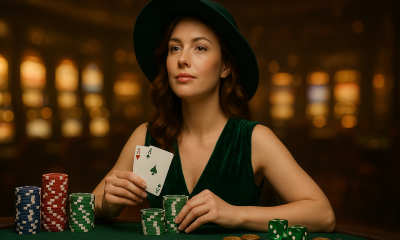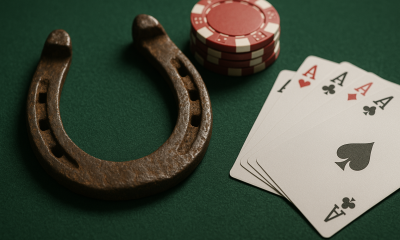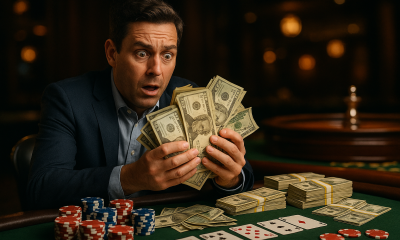Legends
Fortune Tellers and Gamblers: The Allure of Predicting Outcomes

Modern gamblers don’t read much out of a win or a loss besides the financial implications. Or, if there are implications, they mainly revolve around variance, the volatility of the games, and where it leaves their bankroll. But gambling does not always relate to winning or losing money. In ancient times, and still in some esoteric circles nowadays, it has a much more mystical and magical purpose.
Forune telling and gambling are not as much of an unlikely pair as they seem at first. Not that you would read your fortunes in a slot machine, but there are games of chance that some use for divination or read the future. You may have heard of, or even played, games like Ouija or Tarot. As niche as they are today, there was a time when these were hugely popular and some people would take the divinations very seriously. They are not the only games that combine a gambling edge with the mystical. There are many more that are fascinating, and each has its own element of chance or gambling.
Gambling and Fortune Telling in the Ancient World
Throughout human history, there have been traces of gambling. These could either have been enjoyed as pastimes or social rituals in communities, or, in some cases, they may have been used as a means to divine the future. From the Royal Game of Ur in ancient Sumer to horse racing in China, early civilisations all had their own forms of gambling. Take the ancient Egyptians, who made games involving knucklebones or painted sticks. These were used as a primitive form of dice, and were the backbone of the pure chance in games like Senet. Senet, like the Royal Game of Ur, and Mancala – a traditional African sowing game – all gave players control in decision making. But Senet added the pure chance “dice” throws to add a gambling element to the games.
Senet was a part of ancient Egyptian mythology as well. It was the game Egyptians had to play as part of the trials in the afterlife. Or, at least in the mythological beliefs. The unpredictability of the dice throw added a gambling element, but it could also be seen as a sign. Luck could be seen as favour from above, or that good things were to come. Whereas bad luck was a cautionary sign, or a punishment for players. The Hellenistic civilisations had their own gambling games too, such as the ancient Greeks’ coin toss (similar to Two Up), or the ancient Roman dice games.
Some of these games gave players the chance to outwit their opponents, and use strategy to improve their edge even if they didn’t have luck with the dice throws. And overcoming the bad luck with a win may have also been read as an omen.
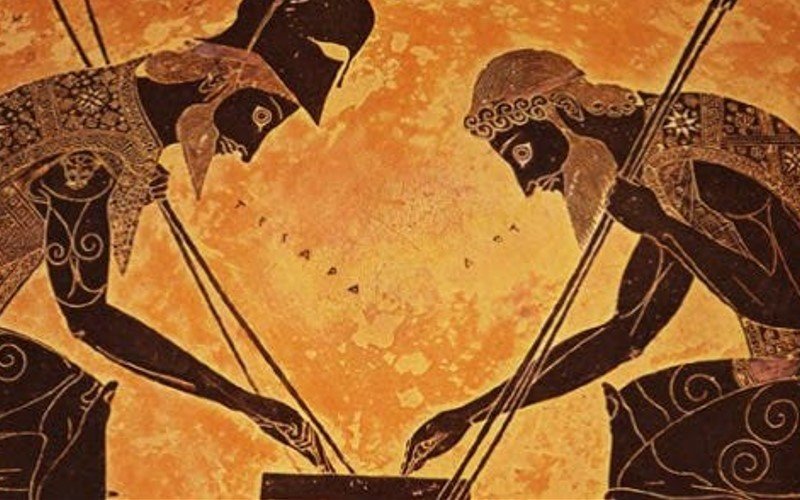
Nomadic and Esoteric Gambling Practices
Civilisations and established empires were not the only people to mix gambling and fortune telling. It can also be found in the customs of nomadic tribes and smaller sects or communities. Within civilisations, gambling could have been enjoyed as a thrill seeking pastime. Such as a merchant wagering their goods on a dice throw. Or communities bartering primitive currencies and bartered goods on animal races or coin flips. But this was not as prominent in tribes that didn’t trade, or have localised currencies.
Though there are traces of gambling practices used in Scythian, Mongol, and Central Asian tribes. Or, among travelling indigenous tribes in South America and Africa. The games would be more of a proving ground for warriors, a social bonding ritual, or a portal to commune with the divine. From native Americans using stick games to seek blessings to Maasai tribes in Kenya jumping over rocks. There was a gambling element to these games, but the participants wouldn’t have wagered any money. Though some practises, such as Buzkashi in the Central Asian tribes, has survived to today and has gradually shifted from strength testing games to sports that you can bet on.
Fortune Telling Games
The best example of a future telling game is Tarot. Originally, tarot was playing cards, used in early versions of poker or bridge. Each Italian state and province had its own special designs and symbols on the cards. But in the 18th century, the game became associated with the occult. Cards like The Fool, The Magician, Death, and The Wheel Of Fortune were given a more esoteric meaning. You weren’t drawing cards to beat your opponent or win money. No, these cards could tell you what will happen in your future.
Ouija is a parlour game that is well known in America. It came to mainstream awareness after the Civil War, when many relatives of the deceased wanted to contact their loved ones. The game is not as straightforward as drawing cards. Because the planchette moves across the board through the ideomotor effect. That is, when minuscule subconscious muscular movements cause the planchette to move, seemingly randomly.

Can Fortune Telling Predict Your Gambling Results
The blunt answer is no. Fortune telling is not a proven science, and does not give you accurate assessments of the risks or what can happen when you gamble. However, that does not stop millions of gamblers across the world from following superstitious gambling rituals or forming superstitious belief systems. Gambling rituals such as blowing on dice for luck, not touching gaming chips at a table, or picking loose machines are all complete hoaxes.
Though not all games have the same allure when it comes to superstition and fortune telling. Slots, blackjack, poker, video poker or baccarat players don’t really tend to have the same range of superstitions as, say, roulette players, keno gamers or lottery players.
In fact, Jogo do Bicho, Matka, Keno, and major lottery games, all attract a lot of these fortune telling or divination superstitions. Players may buy into lucky numbers, or read horoscopes, look for signs, or procure a set of numbers for their tickets in any other seemingly mystical way. Any numbers oriented gambler can shoot these down, claiming they don’t help improve their chances of winning. And that is true, they don’t have any bearing on the results. Because fortune telling cannot foresee the winning Powerball numbers.
But they don’t do any harm either, if the users know that fortune telling is not an instrument that can predict future outcomes. If it adds to the entertainment factor of the gambling games, then there is no reason for players to avoid using lucky numbers, looking for signs, and so on.
Are There Other Ways to Predict Outcomes
You cannot predict what will happen with gambles, that is the whole point of the game. If you knew what would happen in a coin flip, then an oddsmaker would not offer the bet. To gamble is to risk money and take a chance.
Fortune telling in gambling is not possible, and most players know this. Though there are players who buy into other, potentially more dangerous, gambling fallacies. Such as believing in lucky or unlucky streaks. While we can count the mathematical probabilities and even go as far as to say a coin flip should land 50% of the time on either face, this is not guaranteed by any means.
If the coin flip lands on heads all 10 times, it may urge some to back heads and follow the streak. Others may back tails at that point, believing a tail flip win is due. The only thing is, no outcomes are “due” when it comes to gambling.

Pattern Building and Other Counterintuitive Habits
A pattern in the results of a game of roulette or slots is not something that you can use to predict future outcomes. It is just a coincidence, and has no bearing on what will happen. For example, if the ball in roulette alternates between black and red with every spin, this does not mean after falling on black last, the next spin should result in red. The odds are always fixed at the start of every turn of all games. They are the same as the odds in the previous turn, and they will be the same in the next turn.
In lottery games, some players think there are hot numbers that land more often than others. There may be such patterns in retrospect, but it doesn’t mean those numbers have a higher chance of hitting in the next draw.
Therefore, you must always respect the fact that gambling is based on chance. RNG powered games use algorithms that make sequences of outcomes, sometimes ranging in the millions, that have randomised outcomes. Just like their real life equivalents. These games also run on chance, and are designed to be impossible to predict. So always take care of your bankroll, and don’t buy too deeply into fortune telling predictions or gambling fallacies.
